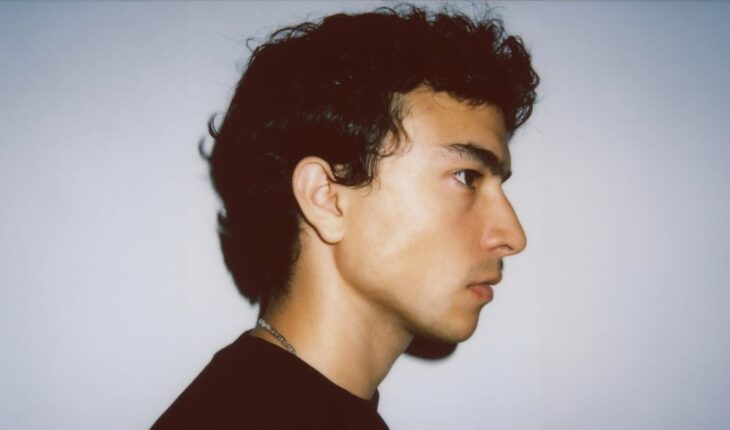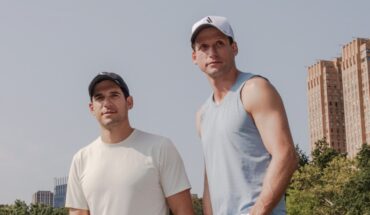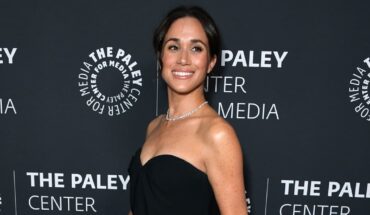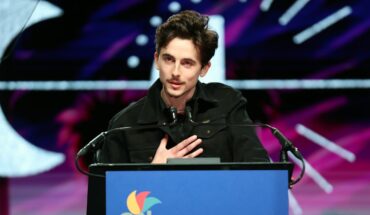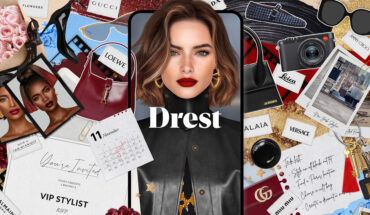In September, the industry descended upon the Shangri-La Hotel in Paris to raise a toast to new and existing members of the BoF 500, the definitive index of the people shaping the global fashion industry. Guests at the gala included Kylie Jenner, Victoria Beckham, Simon Porte Jacquemus, Marc Forne and Ashley Graham.
This year, Neft Vodka has partnered with BoF to platform three new members of the BoF 500 to explore how their creative careers and success are evolving in the industry. “At Neft, we want to invoke this sense of excitement, creativity and engagement, and bring exceptional experiences to our audience,” Paul Robinson, chief creative officer at Neft Vodka, told BoF in a recent interview.
Sam Visser, prominent makeup artist and Dior Beauty Ambassador is among this year’s additions to the list. Renowned for redefining beauty standards with his innovative aesthetic, Visser masterfully blends the high-octane glamour of previous generations with a bold spirit of individual experimentation, making him one of the most influential makeup artists of his generation.
Throughout his career, Visser has worked on high-profile campaigns for brands such as Burberry, Marc Jacobs, MAC Cosmetics, Versace and Balenciaga, as well as magazines including Vogue, W Magazine and The Face. His collaborations with renowned photographers like Inez and Vinoodh, Carlijn Jacobs and Harley Weir have further cemented his reputation as a visionary in the beauty world.
Most recently, his work on campaigns like Marc Jacobs x Stephen Sprouse 2024 and Chanel Eyewear Spring/Summer 2024 have garnered widespread acclaim.
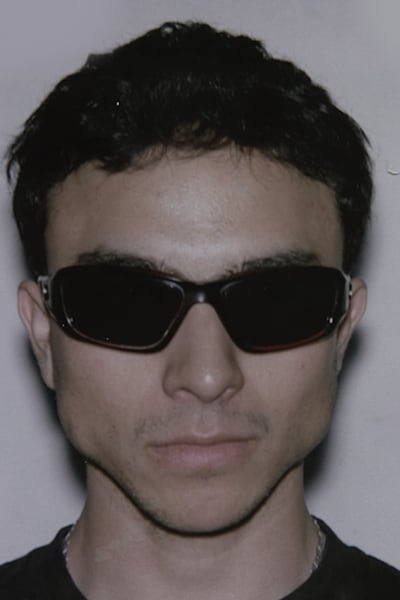
Now, BoF sits down with Visser to understand how his influence on the industry is inspiring a new generation of artists to embrace creativity and experimentation.
How is your creative practice evolving and what is driving that process?
My creative practice evolves by discovering new things constantly — whether that be music, films, art — or even just life experiences and trying to not repeat the way that I go about doing things. Seeing things through different lenses helps me create new ideas and feel new emotions that pushes me forward.
How important do you believe creativity is to connect with consumers, and how is its role in culture evolving?
I think that my only tie to consumers has been through my creativity thus far. It’s the most important element for me, that what I’m putting out there is something that feels right and feels exciting to me. I think that other people will just catch onto that.
Aside from my role in the beauty industry, I’m also a beauty consumer. I love buying makeup, going into the store and seeing and trying makeup. As a makeup artist, when I’m in the store, looking at how products are created, and seeing the creativity in the invention of products, and the science — it’s really intriguing to me.
How do you expand your creative inspiration and expression authentically?
In order to stay true to myself creatively, it’s almost like this exercise of going backwards in my mind. Remembering things from my early childhood or even my teenage years. It doesn’t even necessarily need to be a memory.
It’s a feeling — and then somehow, its outlet is an image, or put into a makeup look, or put into something that feels like it has a correlation with those memories. It’s almost that to move forwards, I have to move backwards a little.
What skills do you believe are most valuable in your profession in today’s market?
As an artist, to stay happy with yourself is the most important thing. The fashion industry can be a place where you can find friends but artistically, it can feel vulnerable to put yourself and your creations out there, which you feel very connected to.
The key to creativity is following your intuition — just to trust and to believe in yourself. In an industry which is constantly telling us what we should and shouldn’t do and how we should and shouldn’t be — it’s important to know and to feel that trust within yourself.
What advice would you give those seeking to enter the beauty industry today?
Stay true to yourself. I think the things about ourselves that we push away to fit in are the things that are the most special about all of us and what connects us.
The key to creativity is following your intuition.
Fashion is a very collaborative industry. The way I found my favourite and best collaborators was by being true to all those things that maybe, when you were 15, you were really insecure about — when that’s actually who we are as people at our core.
What innovations in the industry excite you?
It’s really a pioneering time for beauty. Throughout the last 100 years, we’ve seen innovation with products and in the way we use them, but now, we have a whole different tool involved — which is not human, telling or showing us what is possible.
It’s really cool the way our phones and media and technology have been super involved in starting to shift the way we look at beauty. Whether that be through filtering or talking to AI about products and about what it thinks about beauty. It’s going to shift the way we look at self-confidence and beauty ideals.
I use Facetune or Photoshop to plan makeup sometimes, and that’s only been within the last five years. Before, you couldn’t do that with such ease — you had to sit behind a desktop and create a look. Now, we can do it from the ease of an app that we all can download. And so I think through that, there’s going to be a lot of change in the way we look at skincare and makeup, the way we apply it, and the way we try to make it real.
What does your selection for the BoF 500 mean to you?
I’m honoured because I’m put amongst the names of so many people that I admire, and I’m lucky that I get to call some of them friends. It’s kind of surreal, to be honest — because I’m just here being creative and doing my thing. And so, when this opportunity was brought to me, I was very excited and grateful.
This is a sponsored feature paid for by Neft Vodka as part of a BoF partnership.

